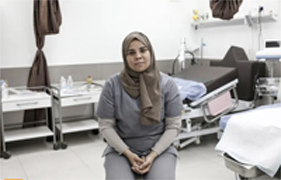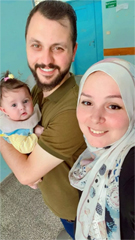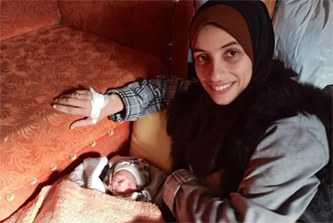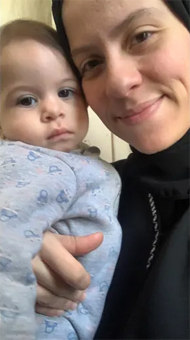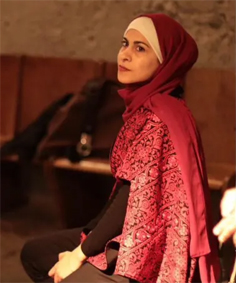|
CRY FREEDOM.net
formerly known as
Women's Liberation Front
MORE INSIGHT MORE LIFE
Welcome to cryfreedom.net,
formerly known as Womens
Liberation Front.
A website
that hopes to draw and keeps your attention for both the global 21th. century 3rd. feminist revolution as well
as especially for the Zan, Zendegi, Azadi uprising in Iran and the
struggles of our sisters in other parts of the Middle East. This online magazine
that started December 2019 will
be published every week. Thank you for your time and interest.
Gino d'Artali
indept investigative
journalist
radical feminist and women's rights activist
'WOMEN, LIFE, FREEDOM'
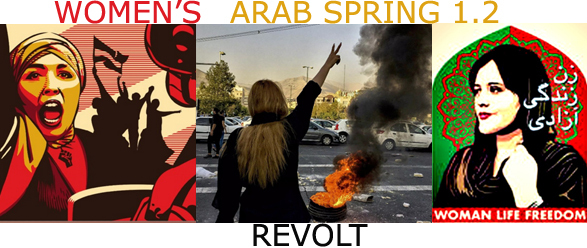
You are now at the section on what is happening in the rest of the Middle
east
(Updates
Sept. 14, 2024)
For the
Iran 'Woman, Life, Freedom' Iran news
Updated
Sept 13, 2024
For the 'Women's Arab Spring 1.2' Revolt
news
Updated Sept. 12, 2024
CLICK HERE ON HOW TO READ
ALL ON THIS PAGE
|
SPECIAL
REPORTS
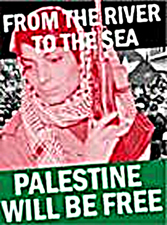
Sept wk2 P3
-- Sept
wk2 P2 --
Sept wk2 --
Sept wk1 P3 -- Sept
wk1 P2 --
Sept wk1 --
Click here for an overview by week in 2024
When one hurts or kills a women
one hurts or kills hummanity and is an antrocitie.
Gino d'Artali
and: My mother (1931-1997) always said to me <Mi
figlio, non esistono notizie <vecchie> perche puoi imparare qualcosa da
qualsiasi notizia.> Translated: <My son, there is no such thing as so
called 'old' news because you can learn something from any news.>
Gianna d'Artali.
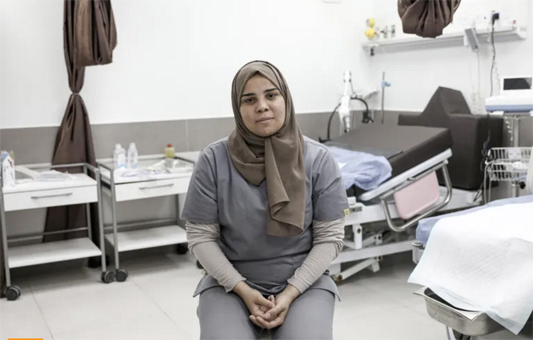
Nour
PIC
Nour
Al Jazeera - September 11, 2024 - By Maram Humaid
<<A midwife in Gaza
Nuseirat, Gaza, Palestine - Nour Mwanis, a 27-year-old midwife, was
still in the al-Awda Health Center delivery room with a woman who
arrived early in the morning in labour. The shift manager said she would
need about half an hour to attend to the birth, clean up, and sterilise
the room and equipment. In the reception area, the grandmother,
grandfather and uncles of a newborn were passing the baby around in a
festive atmosphere.
Grandma beamed as she inspected the baby, swaddled in a pink scarf. The
happiness on their faces brought warmth and joy to hearts around them.
This kind of happiness had been absent for a long time. Asked about the
baby girl's name, they laughed gently and said: "She doesn't have a name
yet." A few minutes later, her mother was wheeled out on a gurney by two
nurses who were taking her to the recovery area. The department head
said Nour was ready to meet, and she was, nearly. Standing in the quiet
delivery room, she looked up with a calm smile as she placed a tray of
tools in the sterilizer, sanitised her hands, then sat on a bed to talk
about being a midwife during a war. Interrupting herself, Nour went out
to reception to ask about labouring women and their progress. The nurse
at the desk said: "They'll all need time. Until the second shift or
tomorrow morning."
"OK, we've got time to talk then," Nour said as she came back to sit on
the bed.
Born on the floor
Nour had dreamed of becoming a midwife, of helping women give birth
safely and bringing joy to new families with smiles all around. For
three years, she had that. Then her dreams were devastated by the start
of Israel's war on Gaza in October. "I never expected to see days like
these in my life," Nour told Al Jazeera of the massive influx of people
who came to the Nuseirat refugee camp in central Gaza, trying to get
away from Israel's bombs by moving south. "For the first three months of
the war, we were handling about 60 to 70 births a day, working around
the clock with just six midwives," she recalled. She also was not able
to go home for about three months. The pressure on the hospital and the
perilous nature of moving around Nuseirat kept her in al-Awda. "The
delivery room couldn't accommodate the numbers. We had to assist some
deliveries on the floor or in prenatal preparation rooms that weren't
equipped for childbirth," Nour explained. The pressure on al-Awda grew
after it became the only maternity facility in the Central Governorate
after Al-Aqsa Martyrs Hospital in Deir el-Balah had to close its
maternity ward to focus on treating the wounded.
"It was chaos - bombing all around, labouring women arriving in
miserable conditions," Nour said with a deep sigh. "Many women had
complications, such as bleeding or stillbirths, and they needed special
care. But it wasn't available, and they just got worse." As if to prove
her point, a nurse came in to tell Nour that 28-year-old Aya al-Kafarna
had been admitted for a stillbirth. Aya was 31 weeks pregnant, but her
baby had died in the womb because she was so weakened by her
displacement without access to enough food, clean water, medicine,
supplements or medical care. Aya's father, a 58-year-old paramedic, had
been killed in an Israel bombing, she said. One day later, she noticed
that her baby had stopped moving in the womb.
Inducing labour was the only way to help Aya, Nour explained. Induced
labour would extract a further emotional toll on Aya as well as a
physical one because her body was not naturally ready to deliver. "I was
in complete shock, and I couldn't stop crying at first," Aya said. "But
eventually, I tried to calm myself and reflect on the circumstances Iím
living in. Maybe it's for the best that this child doesnít have to be
born into such misery. Perhaps God has spared him from this suffering."
Loss, tears in a place of joy
In December, the third month of the war, Nour was attending a delivery
when she heard that her brother had been brought in, severely injured in
an Israeli bombing. "I nearly broke down because I hadn't seen my family
for months and feared they were hiding the news of his death," she
recalled.
"I ran through the hospital, screaming, until I reached him. He had
severe injuries all over his body. I was crying uncontrollably." But her
brother was alive and eventually healed. He had been injured when the
house next door was bombed, a strike that badly damaged the home they
were sheltering in. "Like all families, my family - my parents and nine
siblings - was forced to move from one place to another during the war,"
Nour said.
Throughout, she worked hard, wanting to be there for the labouring
mothers, many of whom are brought to the hospital alone, weeping and in
despair because they have lost loved ones. "Women would be crying on the
birthing bed, telling us about losing their children, husbands or
families. This profoundly affects the birthing process," Nour explained.
"Psychological well-being is vital for the birthing mother. We'd try to
offer some support. We'd embrace them or talk to them, try to comfort
and reassure them. But there were so many cases that this wasn't always
possible, especially in the early months." Nour recalled one woman who
went into labour on the day her husband was killed. In shock, she wept
bitterly throughout the birth as she faced welcoming a new life into a
world where her baby's father had just been killed. "It was an
incredibly difficult situation, and we were at a loss for words to
comfort her," Nour recalled, adding that the woman had trembled
uncontrollably throughout, unable to regulate her emotions. She had a
baby boy whom she named after her husband and left the hospital fretting
about how she would be able to provide for his needs. An orderly rushed
in, interrupting Nour, with a newborn in her arms who was struggling to
breathe. Nour hurried over to help, ensuring the baby was stable and
connected to oxygen. Once the situation was under control, she returned,
though she got up occasionally to check on the infant. Births in which
the mother had been injured in a bombing, sometimes having just been
pulled from the rubble, were possibly even more heart-wrenching, Nour
said. "When the injury is to the back of a woman's head, the birth
becomes incredibly complex," Nour recalled. "We struggle to find a
position for her to give birth safely. These situations ... weren't in
my training or the books we studied," Nour reflected.
Life from death
"Childbirth isn't a joyous welcoming of new life any more," Nour
reflected as she told the tales of women struggling to bring life into
the world.
A woman eight months pregnant was brought in by neighbours and
passers-by once, bleeding profusely from injuries she sustained while
fleeing a bombing. "The medical team tried hard to save her," Nour said
sadly, adding that the mother and baby did not survive. She also
witnessed five occasions when mothers were killed in bombings and
doctors struggled to save the babies, succeeding only twice. The
tragedies Nour witnesses have taken a toll on her, and the early months
of the war were exceptionally difficult because she lost touch with her
family as she stayed on in the hospital. "Sometimes communication would
be cut off, and I'd be overwhelmed with anxiety whenever I heard about
an attack anywhere," Nour said.
All us midwives shared the same fears, so we tried to comfort one
another. Some of us would break down with exhaustion and worry, and we'd
take turns when someone needed a rest."
But being around births also reminds Nour that life goes on.
"War doesn't stop life. People still have children. They still get
married. It's normal for people to continue living, even in abnormal
circumstances.
Even I got engaged during the war," Nour said, describing meeting a
young volunteer with the hospital's security team and falling in love.
She hopes the war ends soon so they can get married and start a new
chapter of their life. By Nour's count, nearly all the labouring women
who come to the hospital have severe inflammations that hinder safe
deliveries. "There's no clean food, clean water or hygiene supplies,"
Nour explained. "All these factors raise the risk of inflammations.
Women come to deliver having not bathed for days, hair full of lice, and
she's coming to an unclean, unsterilised delivery area." The hospital
staff managed to set aside a bathroom for women before they give birth,
providing them with basic personal hygiene kits, including a razor, soap
and shampoo, so they can wash. But once they've given birth, they have
to go back to their makeshift tents.
"Many women even beg us not to stitch their wounds after giving birth,"
Nour added. "They say: 'Please, I live in a tent with no bathroom. I
don't want stitches.'" Nearly all the displaced women have no access to
clean water or to the gas to run a stove and boil water to sterilise it.
"Many women come back with infected stitches due to the poor living
conditions," Nour said. It's not just water that these new mothers lack.
The sanitary pads they need after delivery are very hard to find and
expensive if they are available. "Women also say they can't find privacy
to breastfeed their babies because the tents are so overcrowded," Nour
noted. "We're talking about the bare minimum needs for a woman who has
just given birth. They're not available to women in Gaza." The newborns
of Gaza are not immune from what is happening to their mothers as birth
weights decline by about 30 percent and their general health suffers.
"This reflects the malnutrition of pregnant women," Nour said. There are
also infectious diseases, such as hepatitis A, that are spreading in the
overcrowded displacement camps and exacerbating the risks for pregnant
women. According to the Ministry of Health, 45,000 cases of hepatitis
have been recorded during the war, a stark increase from just 85 cases
the year before the war. "We received several labouring women infected
with hepatitis," Nour said, explaining that infected women are at a
higher risk for postpartum haemorrhaging.
"We had a woman with hepatitis. ... We tried so hard to save her, but
she died. We don't have intensive care or an established protocol for
cases like that," she added. As the war goes on, the number of women in
labour arriving at the hospital has decreased to about 15 a day.
"Palestinians are known for their love of family and children and how
much they celebrate the arrival of births, but there are much fewer
now," Nour concluded sadly.>>
Source: Al Jazeera:
https://www.aljazeera.com/features/longform/2024/9/11/a-midwife-in-gaza-bringing-life-to-the-world-during-israels-war
Women's
Liberation Front 2019/cryfreedom.net 2024


